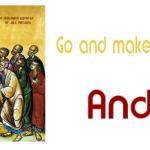Adventurous Lectionary – November 23, 2014 – The Reign of Christ
Ezekiel 34:11-16, 20-24
Psalm 100
Ephesians 1:15-23
Matthew 25:31-46
The celebration of the Reign of Christ turns us toward justice and relationship. God experiences the world and responds to bring about structures of justice and reconciliation. Our worship of God is grounded in our gratitude for God’s love for the world and for all who suffer from injustice. God’s love truly embraces our experiences. God’s love for the world is intimate, concrete, and active.
The reading from Ezekiel describes a divinely-led search and rescue operation. God takes the initiative in restoring the lost and broken. National and personal recovery is possible because of God’s mercy. Yet, mercy takes sides: it may embrace everyone, but those who have profited at others’ expense must face the consequences of their injustice as a prelude to reconciliation. God’s recovery of the lost restores persons, body, mind, and spirit. In so doing, God restores wholeness to the community which has been broken through injustice and oppression.
The divine shepherd has a particular care for the lost and vulnerable and sick and starving. Their pain causes God pain. Yet, God’s pain and the pain of the vulnerable are not accidental; the actions and omissions of the well-fed contribute to the woe of the vulnerable. This is at the heart of Abraham Joshua Heschel’s image of divine pathos. The smallest events are important because they matter to God as well as God’s creatures. God’s quest for justice and well-being leads to an initial bias toward the hungry and marginalized. In the spirit of Mary’s hymn, the Magnificat, the valleys must be exalted and the mountains laid low to achieve divine justice “on earth as it is in heaven.” The disparity between the wealthy, poor, and middle class, destroys the nation, undermines justice, and also gives God pain.
The words of Psalm 100 celebrate God’s loving presence. We are God’s beloved sheep, protected and nurtured by the good shepherd. Thanksgiving and praise are the only appropriate responses to divine providence and care.
The reading from the Letter to the Ephesians celebrates this early Christian community’s fidelity and loyalty. Paul prays that they might more fully experience divine wisdom. He prays for an enlightened heart and spiritual power to characterize the experiences of the Ephesian Christians. He also paints a picture of a community full of Christ, empowered by the resurrection, and blessed with power and wisdom. He imagines that the church is truly a divine body, enlightened and enlivened by Christ’s Spirit.
The passage from Ephesians begs the questions: What does it mean for a church to be animated by God’s power? Are we thinking too small in our congregations? Do we live by scarcity when God promises abundant life? The words of Ephesians challenge us to expect great things from ourselves and our congregations and expect great things from God.
Jesus’ parable of the “sheep and the goats” continues the theme of divine pathos. When we care for the vulnerable, we are implicitly caring for God. God feels the pain of the vulnerable and the joy of their restoration to wholeness. Accordingly, we love the Creator by loving the creatures. There is no dichotomy between loving God and loving the world. If we love all things in God, we will love in helpful and healthy ways.
Matthew 25 posits a theocentric ethic, which joins the vertical and horizontal dimensions of life. Our love for others enriches God’s experience. God truly is, as philosopher Alfred North Whitehead claims, the fellow sufferer who understands. If what we do truly shapes the quality of God’s experience, then ethics involves, in part, the questions: Will our actions bring greater beauty or ugliness to God’s experience? Will we open the door to greater influx of divine activity by actions that bring wholeness, beauty, and justice to the world?
There is judgment for the complacent and unconcerned in Matthew 25. While the gulf between the sheep and the goats is not irreversible, the pain felt by the goats involves recognizing missed opportunities to care for the vulnerable and contribute something of beauty to God’s experience. Perhaps, the pain will be redemptive and they too will be restored to companionship with God and the vulnerable.
The reign of Christ is characterized by what John Cobb and David Griffin have called “creative-responsive love.” God’s love for the world is intimate. God gives life to all things and receives the experiences of the creaturely world. Out of God’s holy receptivity, God intimately responds to the joy and sorrow of creation, seeking to bring beauty out of life’s imperfection and ambiguity. (For more on process theology, see Bruce Epperly, Process Theology: A Guide for the Perplexed and Process Theology: Embracing Adventure with God.)
















